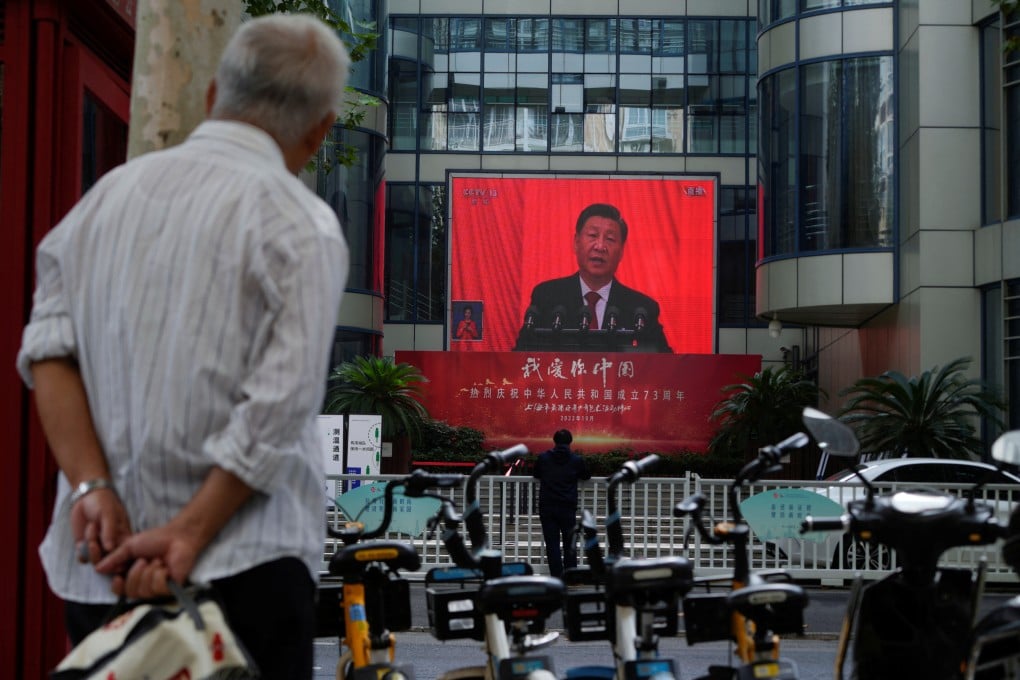Advertisement
Xi Jinping says China must brace for ‘dangerous storms’ while fostering new economic growth engines
- In his political report to the party congress that kicked off on Sunday, President Xi Jinping warns of mounting challenges facing the nation’s economy
- Message largely reiterates everything China is already doing, without signalling significant changes in economic and coronavirus policies, according to one analyst
Reading Time:3 minutes
Why you can trust SCMP
13

Frank Tangin Beijing
President Xi Jinping says China must strive for sustainable, quality economic growth while imposing risk controls and bolstering self-reliance in critically important areas such as food security and technological innovation.
The comments, made during Xi’s keynote political report to the 20th party congress that kicked off on Sunday, came as the world’s second-largest economy faces mounting headwinds that are forcing its leaders to put more emphasis on cultivating a strong domestic market and home-grown technologies to tap into new means of growth while evenly distributing wealth.
Both high-quality growth and common prosperity were prominent in Xi’s narrative of Chinese-style modernisation that dominated his political report to the party congress, and the tone he has set will serve to reshape the economic landscape of not only China, but the entire world.
Advertisement
“Our country has entered a period of development in which strategic opportunities, risks, and challenges are concurrent, and uncertainties and unforeseen factors are rising,” the president said, warning that “black swan” and “grey rhino” events could happen any time.
“We must, therefore, be more mindful of potential dangers, be prepared for the worst-case scenarios, and be ready to withstand high winds, choppy waters and even dangerous storms,” Xi told about 2,300 delegates at the Great Hall of the People who are going to select a new team of Chinese leaders over the coming days.
Advertisement
Advertisement
Select Voice
Select Speed
1.00x
